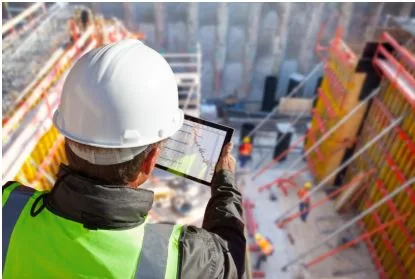The Role of Commercial Electrical Contractors in Large-Scale Construction Projects
Large-scale construction projects—such as high-rise buildings, hospitals, data centers, retail complexes, and industrial parks—require meticulous planning, expert coordination, and highly skilled specialists. One of the most vital players in these projects is the commercial electrical contractor. Their role extends far beyond simply wiring a building; they are integral to the entire construction lifecycle, ensuring that the electrical systems are safe, efficient, up to code, and built to support the facility’s demands for decades to come.
In this blog post, we’ll explore the responsibilities, scope, and significance of commercial electrical contractors in large-scale construction environments, along with the challenges they face and the value they bring to the table.
What Are Commercial Electrical Contractors?
Commercial electrical contractors are licensed professionals or firms that specialize in installing, maintaining, and repairing electrical systems in commercial buildings. Unlike residential electricians who focus on home wiring, commercial contractors work on much larger and more complex systems, including power distribution, lighting, fire alarms, data cabling, security systems, and energy management.
Their work requires a deep understanding of commercial building codes, project management, high-voltage systems, and emerging technologies such as energy-efficient design and automation.
Scope of Work in Large-Scale Projects
The responsibilities of commercial electrical contractors in large construction projects are broad and multifaceted. They are involved from the earliest planning stages to final commissioning and even post-completion maintenance.
- Design Collaboration and Preconstruction Planning
Before ground is even broken, commercial electrical contractors often work alongside architects, engineers, and general contractors to plan out the electrical infrastructure. They help create detailed schematics that determine:
- Electrical load requirements
- Placement of outlets, lighting, and panels
- Integration with HVAC, fire safety, and security systems
- Compliance with building codes and safety regulations
Their input helps avoid costly changes down the line by identifying potential electrical issues before construction begins.
- Installation of Electrical Infrastructure
Once the project moves into the construction phase, electrical contractors begin installing core systems such as:
- Main service panels and switchgear
- Transformers and circuit breakers
- Underground and overhead conduit systems
- Distribution wiring throughout the facility
- Emergency power systems (generators, UPS)
- Lighting systems, including automated controls
These components are essential for the daily operation and safety of any commercial building.
- System Integration
Modern commercial buildings rely on sophisticated networks of interconnected systems. Commercial electrical contractors ensure proper integration of:
- Data and communication lines
- Security alarms and CCTV systems
- Access control systems
- Fire detection and suppression systems
- Building automation and smart controls
Proper integration reduces operational disruptions, enhances security, and improves energy efficiency.
- Testing and Commissioning
Before a building can be handed over, all electrical systems must be rigorously tested. Commercial electrical contractors perform commissioning services such as:
- Load testing and fault current analysis
- Grounding system verification
- Functional testing of lighting and automation controls
- Ensuring compliance with local and national codes
This critical phase ensures the safety, reliability, and longevity of the electrical system.
Challenges Faced by Commercial Electrical Contractors
Operating in large-scale construction environments brings a unique set of challenges. Successful contractors must be able to manage these effectively to ensure timely and quality delivery.
- Coordination with Multiple Trades
Large projects involve numerous trades working in tandem—plumbing, HVAC, carpentry, steel, concrete, etc. Commercial electrical contractors must schedule their tasks in coordination with these groups to avoid clashes and delays.
- Compliance and Permitting
Local, state, and federal electrical codes are complex and ever-changing. Contractors must stay current on regulations, secure permits, and coordinate inspections at each phase to ensure compliance.
- Supply Chain Management
Given the scale of the projects, material and equipment sourcing can be a logistical challenge. Delays in delivery of transformers, conduit, or switchgear can disrupt the entire project timeline. Effective contractors maintain tight control over procurement and inventory.
- Safety Management
With high-voltage systems, heavy equipment, and numerous workers on site, safety is paramount. Contractors must implement and enforce rigorous safety protocols to protect their teams and ensure compliance with OSHA regulations.
Why Commercial Electrical Contractors Are Indispensable
- Expertise in Large-Scale Systems
From multi-story wiring layouts to backup power systems, commercial electrical contractors bring specialized knowledge that ensures every component works as intended and can handle the demand.
- Project Management and Efficiency
Top-tier contractors bring project management capabilities that align with construction timelines, budgets, and milestones. Their ability to coordinate across disciplines makes them valuable partners in reducing costly downtime.
- Technology Integration
As buildings become “smarter,” the electrical infrastructure must support sensors, IoT devices, cloud connectivity, and automation systems. Commercial electrical contractors help future-proof buildings by integrating scalable and adaptable systems.
- Energy Optimization
Contractors now play a pivotal role in sustainability. They install energy-efficient lighting, design systems that reduce peak load consumption, and help clients qualify for LEED and Energy Star certifications.
The Role in Green Building and Sustainability
With growing emphasis on sustainable construction, commercial electrical contractors contribute significantly to energy-efficient and eco-friendly building practices. Their involvement includes:
- Installing solar panels and renewable energy systems
- Implementing LED and low-voltage lighting
- Designing energy-efficient HVAC controls
- Installing EV charging stations
- Leveraging energy management systems to track and reduce consumption
Their expertise helps building owners meet environmental goals and save on long-term operating costs.
Choosing the Right Commercial Electrical Contractor
Selecting the right contractor can make or break a project. Key factors to consider include:
- Experience: Look for contractors with a proven track record in large-scale commercial projects.
- Licensing and Insurance: Ensure they are properly licensed and insured for the project’s location and scope.
- Safety Record: Review their history with OSHA compliance and accident prevention.
- Technological Proficiency: Do they have experience with modern systems such as smart grids, automation, and green energy?
- Reputation and References: Speak to past clients and review case studies to understand their quality and reliability.
Future Trends Shaping the Industry
The commercial electrical contracting industry is evolving rapidly. Future-focused contractors are embracing new trends such as:
- Modular Electrical Systems: Pre-fabricated units speed up installation and reduce on-site labor.
- Digital Twin Technology: Used for simulating electrical systems and optimizing designs before build-out.
- AI and Predictive Maintenance: Leveraging IoT to monitor equipment and forecast failures before they occur.
- Battery Storage and Microgrids: Offering buildings more autonomy, backup power, and efficiency.
Contractors who adapt to these innovations will be better positioned to lead future projects and support next-generation buildings.
Conclusion
In the world of large-scale construction, commercial electrical contractors are more than just service providers—they are strategic partners that ensure the safety, functionality, and long-term success of commercial buildings. From design and installation to testing, compliance, and beyond, their role is indispensable.
As technology, sustainability, and complexity continue to shape the built environment, the demand for skilled and forward-thinking commercial electrical contractors will only grow. Developers, general contractors, and building owners who prioritize collaboration with experienced electrical professionals are setting their projects up for success—today and into the future.







